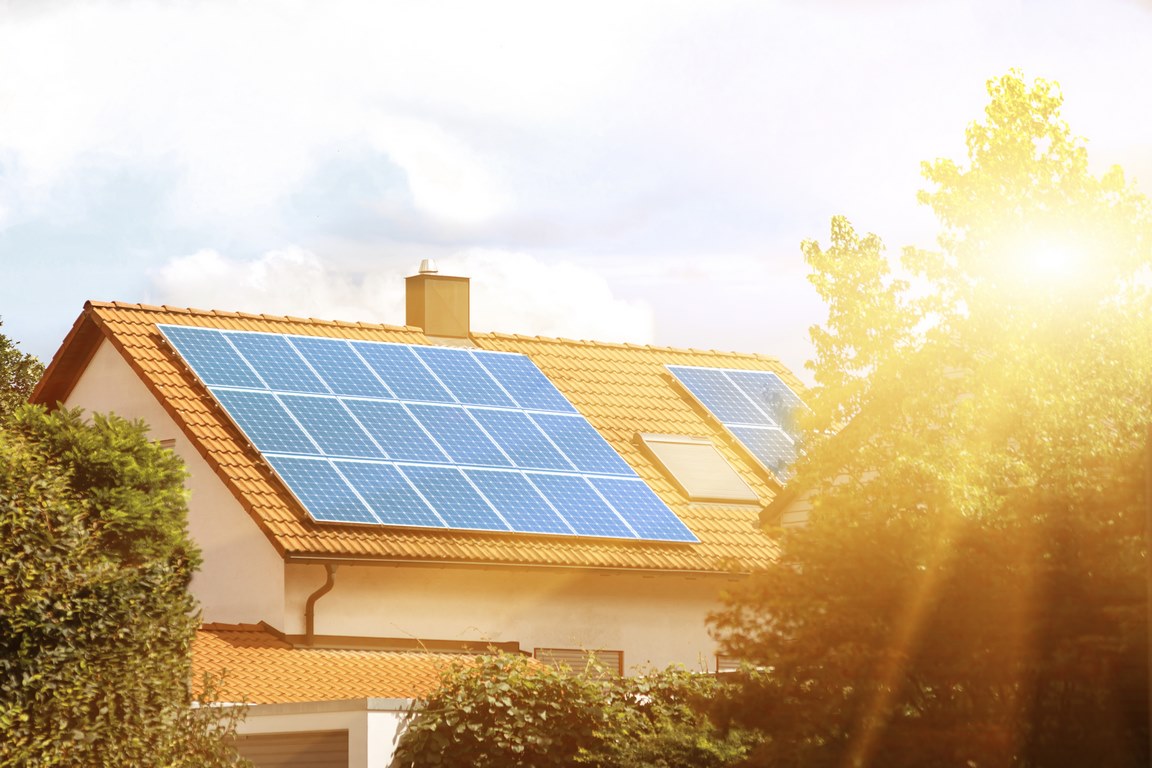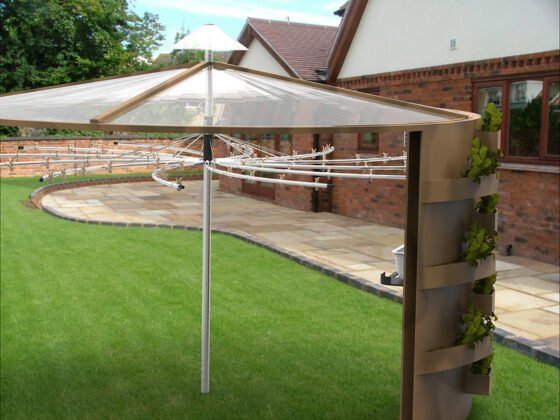Table of Contents Show
Solar power systems are among the ideal alternatives for homeowners who want to go green this year. This option not only allows people to have lower electric consumption; but enables them to contribute to reducing carbon footprints.
With the wide variety of advantages, one can gain from solar power systems. Many people are getting excited to get one installed in their homes.

However, there are plenty of necessary things you need to know first before hiring professional solar panel installers. These may include installation and maintenance costs and the type of solar panel system you need in your home.
For better ideas, you can consider browsing through reliable online sites like https://impactenergy.net/home-solar-installation-denver-colorado/ and other similar resources where you can learn more info about home solar power systems and installation processes. Also, you can continue reading this article for more details.
What is a Solar Power System?
Are you having a hard time managing your high electric consumption? Or are you one of those people who want to pursue a more sustainable lifestyle this year? If so, then having a solar panel system installed in your home might help.
For starters, utilizing solar energy is considered a greener and cleaner option as compared to energy sources from fossil fuels. Many experts believed that solar energy is more environmentally sustainable than its counterparts. You can consult a local Tampa solar installer to know more about the solar expenditure in our area.
Since it converts the sun’s energy into electric energy, solar energy produces lesser carbon footprints and makes less damage to the environment.
Besides that, listed below are some important facts you need to know about solar power systems and their significant impacts on the environment:
- Commonly known as photovoltaic (PV) solar power systems, solar panels are recognized for producing cleaner, renewable energy sources. Along with the other types of green energy like wind power, hydropower, and geothermal; solar energy is said to greatly contribute to lessening harmful emissions in the atmosphere.
- One of the many distinct characteristics of solar power systems that make them unique is their capacity to absorb and convert energy-packed photons of sunlight into electric energy. Due to that, these systems could significantly reduce, if not eliminate, the damages caused by power sources from fossil fuels.
- Aside from promoting energy-efficient electricity, solar power systems can also serve as great investments. Homeowners and users can earn much from solar panels by reselling excess power to the grid.
- Homeowners might have free energy for decades through home solar power systems with proper maintenance and care.
Read Also:
Must-Know Things About Home Solar Power Systems
Solar power systems are known for their fast-rising popularity over the decades. With their incredible capacities and advantages, no doubt that people want to have one in their homes. But before that, it’s important to know the proper measures one needs to take to install a home solar power system.
To help you out, here’s a list of some facts about home solar power systems you need to know to better maximize their uses:
1. Solar Power Systems Are Capital Intensive
If you want to learn things about home solar panel systems, one of the most important aspects you need to know is that they’re capital intensive.
It mainly means that homeowners are more likely to spend a considerable amount of money during the installation procedure of these systems. The main cost of owning a system also comes upfront when they’re purchasing the equipment.
Apart from that, you also need to be mindful of the costs of other equipment necessary for installation, which may include an inverter, metering equipment, housing components, cables, and wirings.
You also have to pay for high-quality batteries that have longer life spans to ensure the efficiency of your system. The installation labor shouldn’t also be neglected if you want to hire a professional installer.
Besides installation costs, homeowners also have to allot some of their budgets to maintenance and utility costs. Lastly, you need to know how to properly clean and maintain a home solar power system well to avoid replacing them after several years of use.
2. Solar Panels Are Cost-Effective
Although owning a home solar power system can be financially straining on your part, one can’t deny the number of advantages it could provide to homeowners. Specifically, solar power systems are widely recognized for being cost-effective compared to standard or regular electricity.
According to the World Economic Forum (WEF), installing solar power systems is more economical and budget-friendly than paying for it indirectly from local power plants. Since solar panels primarily use sunlight, homeowners don’t have to rely on coal, natural gas, or fossil fuel options for their electricity.
Additionally, it’s been reported that the average solar panel module prices have dropped over 75%, which leads to USD$.72 per watt. These alternatives could help you cut out high electricity costs and insulate yourself against market fluctuations and increases depending on how you maintain them.
3. Solar Power Systems are More Efficient
If you’re planning to install a home solar panel system, you must know that there are plenty of factors that could affect its efficiency and overall performance.
Prominent aspects like panel placement, your roof’s architectural design, shading, temperature, and geographic location could either enhance or hamper its effectiveness. That’s why these factors should be factored in before you hire an installer.
If you’re wondering how solar panel efficiency is measured, it relies on the measurement of energy output in a specific area. The more efficient the system is, the lesser consumption it may take. An efficient solar panel may also take up a lesser surface area to meet your energy requirement without having to compromise the energy output.
Solar power systems may also help reduce efficiency loss due to improper panel placements. Plus, solar energy could last longer than the said power sources. Solar panels are believed to last up to 25-30 years. With this, you can efficiently save more money for many years.
4. Solar Panels Reduce Energy Costs
One of the many good things about solar power systems is that they could help tackle energy costs by lessening the amount of electricity needed to make your home appliances and devices run. Typically, a single household may require approximately 4.7 kilowatts per hour (kWh) a day.
The average energy consumption of a single household for a day may take up to 30-40 kWh, which is considered average in the US.
One can’t also disregard that such data may vary depending on the additional consumption of people per household. With that, having a home solar panel system may help you curb your electric consumption and manage the energy supply to your house.
In particular, you may reduce up to 30-70% of energy usage using solar panels depending on your electricity consumption during the day. Having a battery storage system may also help you conserve energy and reduce energy costs.
5. Homeowners Can Sell Solar-Generated Electricity
If your reason for planning to install a home solar power system is to reduce your electric consumption and pursue a more sustainable living, you can get that by having one. However, that’s not the only thing you can get from this equipment.
For starters, homeowners can obtain financial gain by selling solar-generated electricity to utilities. In some cases, people do this by utilizing some ‘net-metering’ plans. This alternative means that residential consumers could use the power they put into the grid to cut down the power consumed at other times.
Through this, homeowners could effectively make their monthly electric bill reflect the net energy consumption in their solar panels.
6. Homeowners Can Choose from A Variety of Options
Aside from being a good form of investment, another good thing about having a home solar power system is that you can choose from a wide variety of options to better upgrade your home value and minimize your energy consumption.
Particularly, here are some of the most common types of solar power systems homeowners can choose from:
Grid-Connected Systems
Among the most common types of solar power systems, grid-connected systems are known for allowing people to maintain their connection to the grid even if the weather’s not good or during nighttime. Aside from that, the system will also work harmoniously with the inverter to harness grid power and maximize power sources without any hassle.
Grid-connected solar power systems are also the ones that enable homeowners to sell solar-generated power back to the grid. But, take note that it’s not possible to fully disconnect from the grid since it’s more of an individualistic approach rather than economically viable. Despite that, this alternative could offer many benefits to users.
Off-Grid Systems
Aside from the grid-connected system, another popular type of solar panel is the off-grid system. These panels are distinguished for being standalone power sources. It usually includes solar and battery power sources and doesn’t require any grid connection. Ideally, this option should always come with a solar and battery standalone power system to upgrade one’s home.
Hybrid Solar Systems
Besides grid-connected and off-grid systems, hybrid solar systems are recognized for storing and reusing solar energy even without direct solar power (i.e., nighttime). These also come with solar batteries that could provide a stable backup power source. But they may not be much investment since they can be pricey.
7. Solar Panels Produce Lesser Carbon Footprint
The alarming increase of the toxic greenhouse gas emissions in the atmosphere is one of the most common concerns of many people over the past decades. Particularly, anthropogenic carbon emissions pose significant impacts on climate change and the environment.
Rising ocean temperatures, melting glaciers, and unstable changes in global precipitation patterns are among the prominent effects of greenhouse gases, which contribute to global warming.
In such aspects, home solar power systems have been said to produce a lesser carbon footprint and mitigate carbon emissions. Compared to fossil fuel power sources and other natural gases, solar energy produces cleaner, renewable electricity that could benefit the environment.
Takeaway
It could be challenging for many people to lead a more sustainable and greener lifestyle. With many things to consider and risks to be mindful of, people may easily get overwhelmed and demotivated.
Fortunately, there are plenty of available alternatives one can consider to obtain their purposes, including installing solar power systems into their homes.
This equipment is considered the best option to help people reduce energy consumption and carbon emission. Through them, people can’t only pursue sustainable living but also save more money.











